 (Janis Vitenbergs, Transport Minister, Lativa)
(Janis Vitenbergs, Transport Minister, Lativa)
Previously, the traffic sector generated around 20% of Latvia's gross domestic product, but currently it is less than 10%, in some traffic sectors it is a slow, in others a rapid decline, the new Minister of Transport Janis Vitenbergs admits in an interview with the LETA agency. Therefore, according to him, the main challenge is to get us not to fall down, but to stabilize and start climbing up.
Among them, the new minister is ready to tackle changes in "Latvijas dzelzceli", because according to him, the company has been sitting with its hands in its lap for years regarding market diversification. The implementers of the "Rail Baltica" project have also been convened at the same table to find a solution for the progress of the project according to the schedule. Also, the minister wants to pay special attention to regional highways and public transport.
You have already mentioned that your priorities as transport minister will be railways, public transport and road infrastructure development. What exactly do you intend to do in these areas?
My priority in the field of roads will be regional and local highways of national importance, because previously in the context of administrative territorial reform it has been said a lot that people in the regions need the same basket of quality services - these are social services, opportunities to get to school and work. At the same time, the promise to provide equally good roads has not been fulfilled. Also, during the meeting with the management of "Latvijas valsts kētu", it became clear that approximately 50% of local roads of national importance are of poor quality. Therefore, the focus will definitely have to change.
The second thing is passenger transport. Work is needed here both with bus carriers and with the railway. Even after the bus transportation tender, we still hear from municipalities that the situation has not improved, buses are still running that neither parents with prams nor the elderly can get on. A similar story is about trains. Here, too, the service must be modern, high-quality, with appropriate platforms.
There is a huge amount of work ahead to rebuild the planned 48 platforms by the time the new electric trains start running. There is a lot of talk that people should take public transport, but I recently spoke to a senior citizen who almost or sentimentally remembered how she used to take the train a lot when she was young, but now she is not in a good condition to get on it. It should be quite the opposite. Therefore, we have also raised these priorities in the budget.
How much will the Ministry of Transport request from budget funding for roads?
We request 35 million euros are for local roads of national importance and 57.8 million euros are for regional roads.
The calculations of "Latvian National Roads" also show that if the funding remains at the base level, then the condition of the roads will not improve, but deteriorate. It is quite a paradoxical situation. Of course, other ministries will also have many needs, but we have to talk and fight about this.
A government declaration says that road safety needs to be improved to reduce road deaths. Are there concrete plans to achieve this?
It is a well-known fact that Latvia looks really bad against the background of other European countries. Accidents often occur because cyclists and pedestrians have no other option but to move along the side of the road. The infrastructure is starting to take shape, and the first projects have taken place, but systematic work is needed. It is positive that when the Ķekava bypass is built, there will be infrastructure for both cyclists and pedestrians. Also in the future, when building and renovating roads, this should be considered. Large funds have been earmarked from the Recovery Fund and bicycle paths will be built that will connect the municipalities of Riga and Pieriga. As a new initiative in the budget negotiations, we proposed that funding should also be allocated for the development of regional bicycle paths and pedestrian paths every year. A good example is the Ķengaraga promenade in Riga. Initially, it seemed like a harsh enough environment, where families with children will not want to be at all, but it turned out that, when suitable infrastructure is built, it is full of people all the time. This means that our society demands it, because what family wouldn't want to ride their bikes or roller skates without the constant fear of being hit by a car. Our society is changing, so are mobility habits, and we have to keep up with it.
Recently, the Road Safety Council proposed to establish that the driver's license can be revoked if the permitted speed is exceeded by more than 30 kilometers per hour. How do you rate it?
This question has caused quite a stir. In my opinion, this is a disproportionately harsh punishment. We have a lot of problems, including thinking problems, starting with drunk driving and speeding. However, exceeding the speed of 30 kilometers can also be related to other reasons, which should be evaluated individually. For example, it can also happen during an overtaking maneuver. We will have to come back to this question.
You have already mentioned that roads and public transport should be such that people in the regions are provided with equally accessible services, and this is also mentioned in the government's declaration. Is there a specific time frame by which this declaration point is expected to be reached?
The biggest problem with road infrastructure funding is that it is highly variable. This is also recognized by the representatives of the industry, that it is very difficult to plan works and develop companies, if one year there are funds, the next year they are not. Regional and local roads require stable investment. Our challenge will be to convince the coalition partners to allocate these funds.
If we talk about mobility, then the positive thing is that many people choose to go to work by train, do work on the way and not think about blizzard or other weather conditions. With quality buses and trains, this number of people will only increase.
I can draw parallels with my work as the Minister of Economy, when it was decided to abandon Russian energy resources. The railway is also largely a Soviet legacy, both visually and in terms of infrastructure. My goal is to turn traffic around so that it is a modern, predictable and profitable industry. Previously, the traffic sector generated around 20% of our gross domestic product. Currently, they are less than 10%. In some traffic sectors it is a slow decline, in others a rapid decline. If I have the opportunity to work in this position for four years, then the main challenge is to ensure that we do not fall down, but stabilize and start climbing up.
How do you evaluate the progress of the tenders announced by the Road Transport Directorate for regional bus transports, because their results are constantly being appealed, so everything is taking a long time?
As the Minister of Transport, it seems unacceptable to me that when this type of procurement is carried out, the citizens who cannot receive quality service ultimately suffer. My priority will be to ensure that people get the service they are entitled to. If there are areas where the new carrier that has won the tender is unable to provide this service, then there must be opportunities to change carrier.
How do you see the future of VAS "Latvijas dzelzceļš" (LDz), because previously a large part of its workload was Russian cargo transportation, but now the company must be allocated significant funds from the budget to ensure its operation?
Upon taking office, one of the first conversations was with the management of LDz. It was hard and harsh, because I am not satisfied with the company's position, which could be described as: "We used to work with Russia, now it is not possible, so we just watch the situation deteriorate." It amazes me that LDz has sat on its hands for years regarding market diversification. The situation with Russia was difficult for a long time, before its invasion of Ukraine, and it is negligence on the part of the company's management not to look for alternatives to the Russian market. You can try to tell people that it's someone else's fault, but you can't hide the fact that LDz's competing companies have been able to deal with existing challenges much more successfully. LDz is a large company with wide opportunities to search for new cooperation partners, new ways of cooperation.
In 2023, LDz predicts that cargo turnover could be 16 million tons, in 2022 - 19 million tons. In 2021, they were 24 million tons. This is a very rapid decline. The company itself has admitted that it could do without state support with a turnover of 25 million tons. However, the company itself must also fix its operating model, so that it is not just a situation where at the end of the year, when the balance sheet is in the red, we go to the government and demand to compensate everything from the budget. It's the easiest way to go, and unfortunately, the last few years have been like that. I have given a clear message that this cannot continue. We will also review the possibility of restructuring the company by merging LDz subsidiaries, so that the savings are not only at the expense of the simple workers, but also at the expense of wages of the boarders and councils.
Therefore, the complexes will have to look at where we can reduce expenses and what are the development opportunities. The market is constantly changing. I can mention Ukraine as an example. The whole world is waiting for Ukrainian grain, but its transportation by ships through the Bosphorus is very problematic due to Russian aggression. I think that we can offer to build a corridor for the export of grain by rail, also using the possibilities of LDz. You can't just watch how a big company like LDz sinks. It needs a fresher perspective on how to improve its financial performance.
You said that you expect a new development vision from LDz. That means they are tasked with creating a new operating strategy?
In February, together with the management of LDz, we will go to the government and present it with the current situation, the immediate goals, how costs could be reduced, and, of course, also the strategic vision of how the company will work further, so that it is clear what state involvement will be required.
How do you view the information that has recently appeared that all the Baltic States must develop a plan to switch to a single European railway gauge by 2025-2026? Any ideas how this could play out?
The choice to get closer to the European railway network was made more than 10 years ago, when it was decided to implement the "Rail Baltica" project, because this project has the width of the so-called European tracks. All the rest of the infrastructure is focused on Russia and Belarus, therefore it is very important that "Rail Baltica" will provide an opportunity to provide both passenger and cargo transportation in a continuous flow to Europe. On the other hand, to talk about the transition of the entire railway network - it is already a multi-billion euro project and it is practically unrealistic to pay for it from the state budget. Therefore, the question is also what the European Union (EU) expects and what will be its involvement and co-financing, so that such works can be carried out. However, the future is, of course, connecting "Rail Baltica" with as many objects as possible that are important for the development of the national economy of Latvia, Therefore, it can be said that the task of investigating the situation has been given, but it is still too early to say how much it really costs.
We assume that we are not going to eliminate all the so-called Russian gauge tracks?
No. It is too early to talk about it, because such a track width is also, for example, in Ukraine. I really believe that the war in Ukraine will end and we can play a big and important role in the reconstruction of Ukraine. Our ports and railways can be used to supply Ukraine with construction materials and much more. Also, we cannot exclude that the political regime will change in Russia and Belarus.
You already mentioned that "Rail Baltica" should be connected with as many objects of the national economy as possible. The government's declaration also states that a 1435 mm rail connection with the port infrastructure will be evaluated and planned in order not to lose cargo flow in competition with Estonia and Lithuania - is it planned to attract additional funding from the EU?
"Rail Baltica" is both a great challenge and a great opportunity for our cargo and passenger transportation. But for it to work and for our economy to benefit, connections are needed. It is the Salaspils intermodal cargo terminal, where goods from "Rail Baltica" could be delivered and received from all over the country. There must also be a connection with the port of Riga. At the moment, the costs related to the "Rail Baltica" track itself can be attributed to EU funds. However, there is no agreement that connections with infrastructure objects could be financed. It's our job to look for opportunities - whether it's a public-private partnership or something else - how we can build connections with ports. Therefore, yes, it is not possible from the currently available funding, but we cannot do it without these connections.
This means when the "Rail Baltica" track is completed.
Then the second round could start and we could also look at EU funds. The problem, on the other hand, is that it could be after a relatively long period of time. We would be the winners if it was immediate and we could immediately use the full potential that such a line can provide.
How will the point mentioned in the government's declaration "intersectoral cooperation and monitoring format for the timely adoption of strategic decisions necessary for the implementation of "Rail Baltica" and updating the national position of Latvia" be expressed?
"Rail Baltica" is the largest infrastructure project of our generation in the entire Baltic. Connectivity with Western Europe will allow our railways to be more flexible and this is also a huge safety aspect.
Talking to colleagues, there is concern that the project has slipped from its original schedule and there is a lack of cooperation between the parties involved. There are three participants in Latvia - the joint venture "RB Rail AS" founded by Latvia, Lithuania and Estonia, which is the central coordinator of the "Rail Baltica" project, "Europas Dzelzceļa lijnas" is the national implementer of the project in Latvia, while the Ministry of Transport is the implementer of the "Rail Baltica" project and The recipient of EU support, which ensures the fulfillment of the conditions of the financing agreement, controls the compliance of the project-related expenses with the concluded agreements, and also ensures the preparation of the base of regulatory acts.
The project is complex because all three Baltic states are involved and each of them has had its own vision and interests from the beginning. I believe it will be my duty to seat all players at the same table. Previously, from the Ministry of Transport, there has probably been a somewhat rosy communication about everything. My goal is to sit everyone at the same table, think and agree on how we can achieve the goal. This format could be under the authority of the Minister. The prime minister also admitted that the cooperation could have been better so far and this will also be his focus. We will also talk with our colleagues in the Baltic countries, so that there is maximum representation at the political level as well.
Recently, there was also information about problems in the joint venture of the Baltic states "RB Rail" - once again one of the management team is fired and there are internal disagreements. Have you already met with the management of this company? Do you see any internal problems in the company, and do you think it is working with quality and according to the scope of the project?
This is nothing new and I have already observed it before I was even in politics. There have always been internal conflicts, every country has some kind of internal interest in the governance model. Therefore, it is not surprising, but it also does not help in any way to successfully implement this project. Each of the involved parties has shown a desire to talk with me, but as I have already mentioned, it will be possible to do something successfully when all three sit at the same table. So I'm hoping that in the week after the New Year we'll be able to articulate where we are now, whether we're behind schedule, whether we have enough funding, where there are stumbling blocks, and then put together concrete things that need to be done to move this project forward. .
How do you currently evaluate the performance of Latvia's large ports and do you see that any changes are necessary?
Analyzing all areas under the Ministry of Transport, it must be said that in those sectors affected by Covid-19, such as passenger transport, the situation is improving every month. The situation is stabilizing and there is a basis for optimism. On the other hand, when it comes to cargo transportation, which has been largely associated with Russia and Belarus, the situation is more gloomy. At the same time, it must be recognized that companies working in ports and port authorities have adapted to these conditions. If we compare the turnover of the three big ports with the previous year, it has increased by almost 10%. For example, cooperation with Kazakhstan has increased, which only proves that it is possible to adapt to the situation. Times are tough, but ports will continue to play an important role in the development of our country in the future.
Areas where performance can be improved are local freight, shifting emphasis from road transport to rail. These are grain, wood. On the positive side, more and more manufacturers are indeed choosing to use rail. It has to be the primary form of transport here locally in Latvia. Looking at Europe, those ports that do not deal only with transshipment of goods develop better, because such opportunities to earn are very limited. A large volume of work is performed, there is a large flow of cargo, but the profit is relatively small. Beneficiaries are those who carry out production in port areas. Our ports still have quite large areas to develop production, and this is a completely different added value and stable goods circulation channels for the ports. This is also a big direction to work on.
The previous government supported port reform, and JSC "Rīgas osta" must be established by January 1. As far as is known, such a document was submitted to the government already in autumn. Why is it not moving forward?
January 1 is the deadline by which the free ports of Riga and Ventspils had to be liquidated and everything transferred to new structures. "Port of Ventas" has already been established in Ventspils, and the draft order on the establishment of the joint-stock company "Port of Riga" has been submitted to the Cabinet of Ministers, but it has not yet been adopted. There has been uncertainty about how workers would migrate from one structure to another, or whether compensation would have to be paid. There is also the issue of asset value. The liquidation commissions are currently assessing how much this property is in both ports and what the financial obligations are to the banks. It is difficult for me to judge why work activity has decreased in recent months and why this issue has not been targeted enough. However, it must be taken into account here that during the previous Saeima, the opposition MPs submitted an application to the Constitutional Court regarding port reform, and
Therefore, in the near future, my colleagues and I will initiate a discussion in the coalition about the next steps. I see that an extension will have to be requested to carry out the works mentioned. Also, I hope that there will be a verdict of the Constitutional Court soon, so that it is clear whether the way that has been decided is accepted by the Constitutional Court. I don't think that there will be any huge changes, that the life of the port workers or the residents of certain municipalities will change, as is often tried to be presented in the society. It is a change of management model to the one that exists in a number of European countries, such as the Port of Rotterdam.
So, the "Port of Ventas" is currently at the same stage when the assets are being evaluated and the verdict of the Constitutional Court is awaited?
It's not like there's a special wait because, as I mentioned, there are a number of things that need to be done. This is the legal model, how employees can transfer to the new capital company, the real amount of assets - real estate, movable property - must be assessed. There will be a discussion on how to transfer the financial portfolio from the current port authority to the new joint-stock company. These are legal issues that are currently being worked on. I think that we will soon be in government with a specific term in which we see the opportunity to implement all this.
Currently, this deadline is not yet clear?
It would be premature. We have not yet had a conversation with the Ministry of Finance about why the document on the establishment of the "Port of Riga" is not moving forward.
How do you see the development of small ports?
Our great advantage is that we have these small ports that were once formed as fishing ports. As coastal fishing volumes decrease, opportunities for other functions appear for them - for example, tourism. At the same time, there are ports where no improvements have been made since Soviet times. Each small port must find its own niche and opportunity in the overall story. There are Skulte and Mērsrags, where they deal with wood transshipment and work quite successfully. The potential of small ports has not been fully evaluated and realized. Those ports that will not work with cargo can realize themselves in the field of tourism. It can also give a boost to the surrounding service sphere - cafes, hotels. The possibilities are wider than they have been used so far.
The government's declaration also mentions that you will promote the inclusion of regional passenger transport in the Public Transport Plan of the Riga Metropolitan Area - what kind of cooperation do you see with the Riga City Council?
At the beginning of the year, I plan to meet with representatives of the Riga City Council. I also need to do my homework and understand what the collaboration has been like so far. As a resident of Latvia, I would certainly like to make our ticket sales system more modern with this point, so that you can buy a ticket from Babīte to Riga and further to Valmiera at the same time. Recently, the population of Pieriga itself has grown, so connectivity between and within the districts of Pieriga is also necessary. For example, so that you can easily get to Mārupe, etc. from Babīte. It's been talked about a lot, but so far I haven't heard any real success stories.
The government's declaration also states that the operation of "airBaltic" will be adjusted "in accordance with the new market conditions". What are these new market conditions and how is it planned to be implemented?
In aviation, these new conditions can be considered the time of Covid-19, which has an impact on transportation, and on our side, it is also affected by the fact that we can no longer fly to our eastern neighbors. The new world is one in which there is no economic cooperation with Belarus and Russia. It has to be compensated for somewhere else. There has been huge support from the government and taxpayers' money has been invested in the airline. The airline also has a very well-paid management team that has been given a lot of credit and they need to find these new opportunities.
Air travel is seeing people coming back and improving every month. There are airlines in Europe that are already profitable. I have also heard from "airBaltic" that there is such a possibility. Therefore, it is necessary to find opportunities for how we work in the new conditions. There can be no perpetual state subsidy for an airline.
Have you already met with the management of all the capital companies under the control of the Ministry of Transport and do you expect any specific works from the capital companies?
Already in the first week of the government's operation, we went to the government with a subsidy request for LDz for 2021.
We have had a joint meeting with the management of all capital companies, where they reported on the current situation and future challenges, but in the near future I will try to meet individually with the representatives of all capital companies.
I already mentioned that LDz needs to work on the further operating model. There will be a meeting with the companies involved in the implementation of the "Rail Baltica" project. I spoke with the Freeport of Riga and plan to meet with representatives from other ports and businessmen working in them to understand what they think about the current version of the port reform, because regardless of the management model, businessmen will have to work in the ports. Therefore, it is not all a matter of one day.
How do you see your cooperation with various industry non-governmental organizations, associations?
In the work of a minister, it is always important to consult and listen to different opinions and suggestions. Clearly, those who work in specific industries know the situation better. Therefore, their involvement will be active, as only this can achieve results. A single ministry house cannot work autonomously.
How do you generally assess the current situation in the Latvian traffic industry?
Despite the fact that there have been signals from Russia many years ago that we do not count on you in the long term, there has been insufficient work to know what to do when there are no Russian cargoes. It could have been dealt with much earlier and in a more planned way. Now it will have to be done in rapid steps. In that sense, it is even strange that in the Ministry of Economy I had to solve the same issues in the energy sector, where for 30 years no one dared to give up Russian gas, and I had to prove that it is possible to live without it. Now similar things need to be done here.
(This interview was originally published in lativian lunguage)



 Behind Closed Doors: Corruption Uncovered in Delhi Metro's Top Management
Behind Closed Doors: Corruption Uncovered in Delhi Metro's Top Management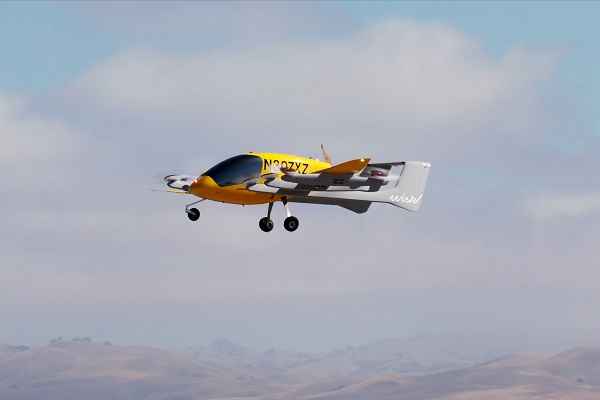 IndiGo to launch Urban Electric Air Taxis between Delhi to Gurugram
IndiGo to launch Urban Electric Air Taxis between Delhi to Gurugram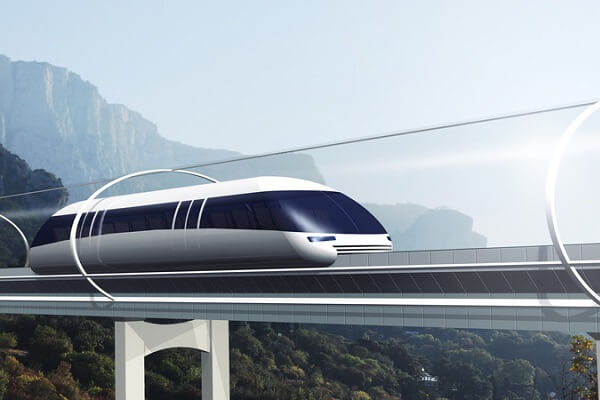 Swisspod secures Strategic Investment to advance the Hyperloop Transportation
Swisspod secures Strategic Investment to advance the Hyperloop Transportation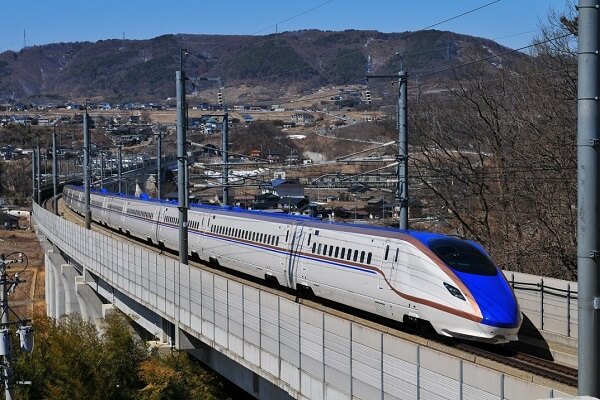 Siemens Mobility revolutionizes Copenhagen's S-bane Network with Driverless Technology
Siemens Mobility revolutionizes Copenhagen's S-bane Network with Driverless Technology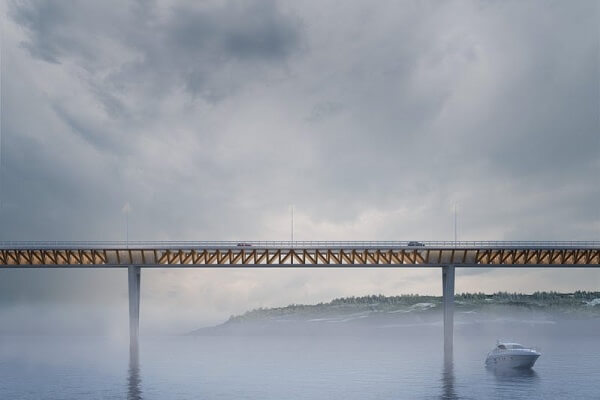 Unlocking prosperity between India and Myanmar: The Kaladan Multi-Modal Transit Project
Unlocking prosperity between India and Myanmar: The Kaladan Multi-Modal Transit Project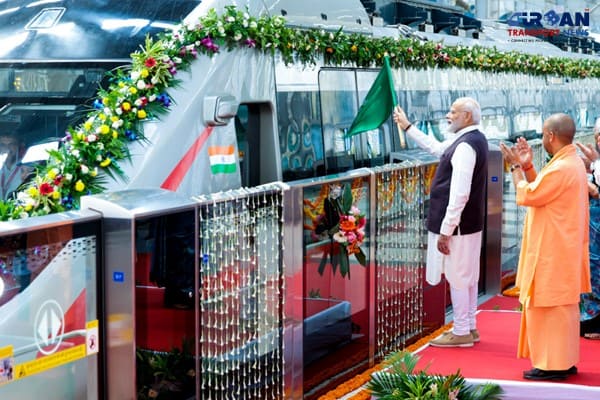 Is the RRTS Truly Accessible to the Common Man or Only the Privileged?
Is the RRTS Truly Accessible to the Common Man or Only the Privileged?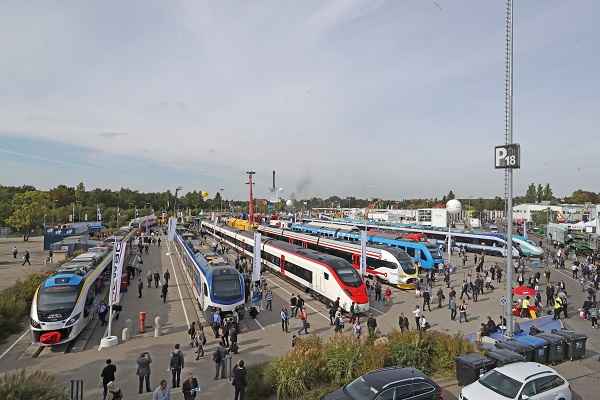 Alstom sold its Rail Signalling Technology Business to Knorr-Bremse for €630 million
Alstom sold its Rail Signalling Technology Business to Knorr-Bremse for €630 million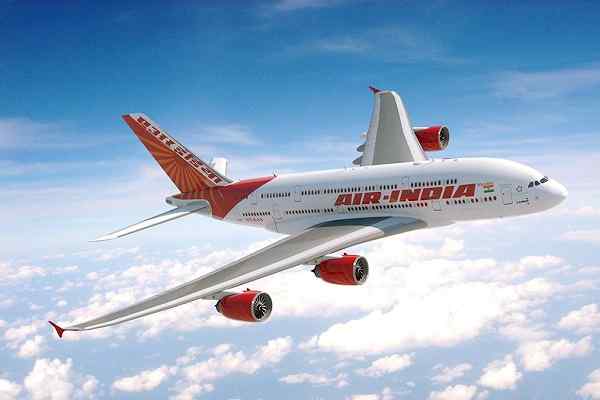 Vensa Infrastructure wins ₹412.58 crore civil contract for Hisar Airport
Vensa Infrastructure wins ₹412.58 crore civil contract for Hisar Airport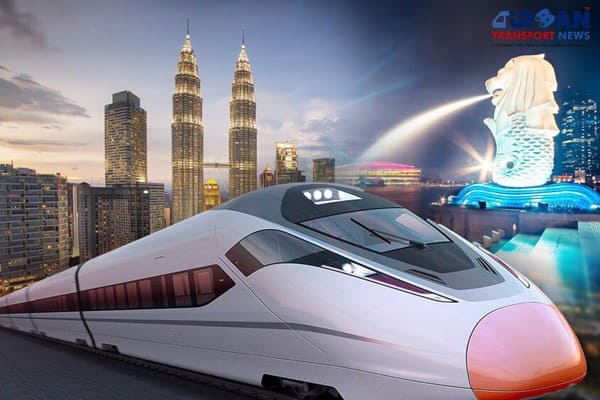 Kuala Lumpur-Singapore high-speed rail project cost could be slashed to RM70 Billion
Kuala Lumpur-Singapore high-speed rail project cost could be slashed to RM70 Billion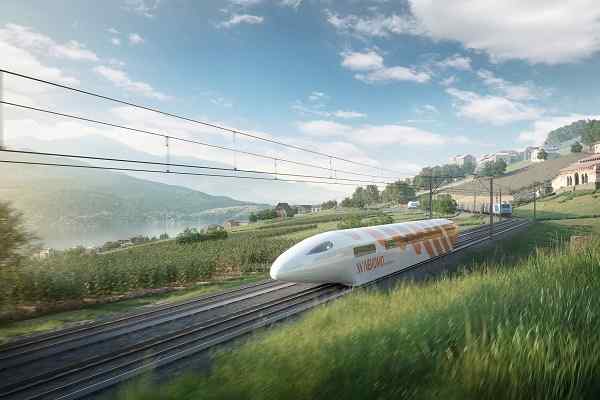 Nevomo's MagRail Technology Selected for Hyperloop Freight Demonstrator
Nevomo's MagRail Technology Selected for Hyperloop Freight Demonstrator (Janis Vitenbergs, Transport Minister, Lativa)
(Janis Vitenbergs, Transport Minister, Lativa)




